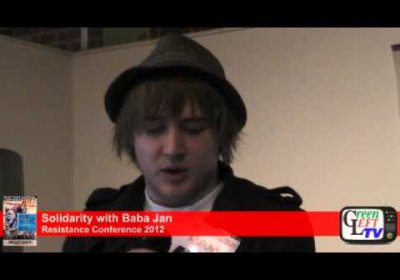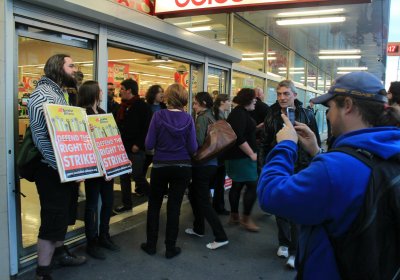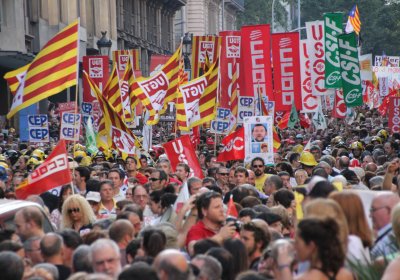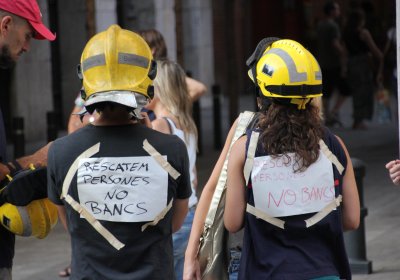Resistance national conference motion in solidarity with Pakistani political prisoner Baba Jan. Moved 22 July 2012. Adelaide South Australia.
931
Victoria's severely stressed public housing system is under threat from the state's Liberal government, with cutbacks and sell-offs being discussed under the guise of “reform”.
Since the idea of Zionism (a Jewish state in historic Palestine) first gripped the minds of a few intellectuals, the state of Israel has represented its colonisation of the land of Palestine, and its uprooting of the Palestinian people, as a rejuvenation of the earth.
Members of the socialist youth organisation, Resistance, came from around the country to Adelaide over July 20-22 for the 42nd Resistance Conference.
The conference consisted of plenaries on Australian politics, international politics, plans to build Resistance and “Perspectives for the Left”.
Neighbours watched in horror as police in Anaheim, California first shot Manuel Diaz in the back of his leg ― and then executed him with a bullet to the head in the courtyard of their apartment complex on July 21.
The Anaheim Police Department proceeded to terrorise residents who gathered to confront the cops about the murder they had just witnessed. Police responded by opening fire with rubber bullets and tear gas at a crowd that included young children.
And the winner is: solar power. Residents in the South Australian town of Port Augusta have voted overwhelmingly for solar over gas to replace the town’s coal-fired power stations.
The result, announced on July 22, was 4053 votes for a concentrating solar-thermal power plant, 43 for gas. In the end, 98% of voters favoured solar.
The result is testament to newly-formed local group, Repower Port Augusta, whose dedication ensured that almost one-third of residents voted, an impressive outcome for the voluntary exercise.
Adopting a centre-left reforming image, Peruvian President Ollanta Humala was narrowly elected last year on the back of widespread discontent with destructive neoliberal development policies and a widening wealth gap.
His supporters were filled with the hope that real and substantive change was imminent. Other progressives welcomed the Humala victory more cautiously, arguing that it was at least the lesser of two evils. The alternative was ultra right-winger Keiko Fujimori.
It rarely takes very long into an Olympics for the myth that the games are above politics to be shattered. For the London 2012 games, the myth was smashed well before the games begun.
A series of incidents involving Australian athletes have shown that politics are at the heart of the games.
Despite winning the Olympic trial earlier this year, athlete John Steffensen was not selected to represent Australia in the individual 400 metres sprint, replaced by 19 year old Steve Solomon.
When 3.5 million people protested on July 19 in more than 80 Spanish cities and towns ― against the austerity measures announced a week earlier by the Popular Party (PP) government of Mariano Rajoy ― it came as little surprise. It built on the growing wave of popular anger.
Waving banners, lighting fireworks and chanting against budget cuts, millions of people in Spain were on the march in more than 80 towns on July 19.
There is a lot of discussion about the nature of the Chinese economy and its developing role in global capitalism.
Much of the debate has focused on the tensions between a seemingly declining United States and rising China ― and possible changes in the global distribution of power.
In the context of a global domination of US-backed neoliberalism, the “Chinese model” has been put forward by some as a possible alternative. However, not only is China's rise far from inevitable, its “model” has its own contradictions ― as the rise of labour struggles helps reveal.
Tens of thousands marched in June from 110th Street in Harlem down to billionaire New York Mayor Michael Bloomberg’s swank residence on 79th street in Manhattan.
The demonstrators protested the huge levels of police racial profiling and harassment in New York City, that has developed over the past decade.
The overwhelming majority of marchers were African Americans and Latinos. A multiracial contingent of LGBTI people also participated, reflecting another group singled out by the city administration.
- Page 1
- Next page









